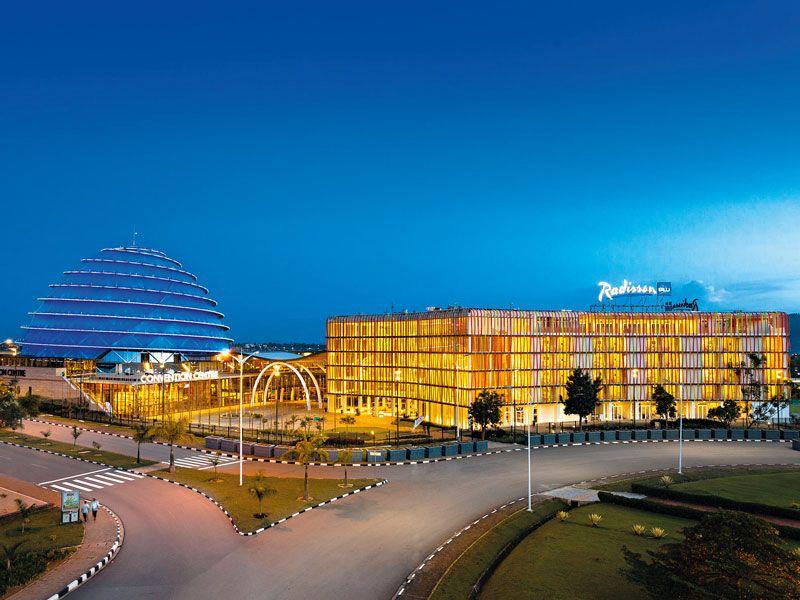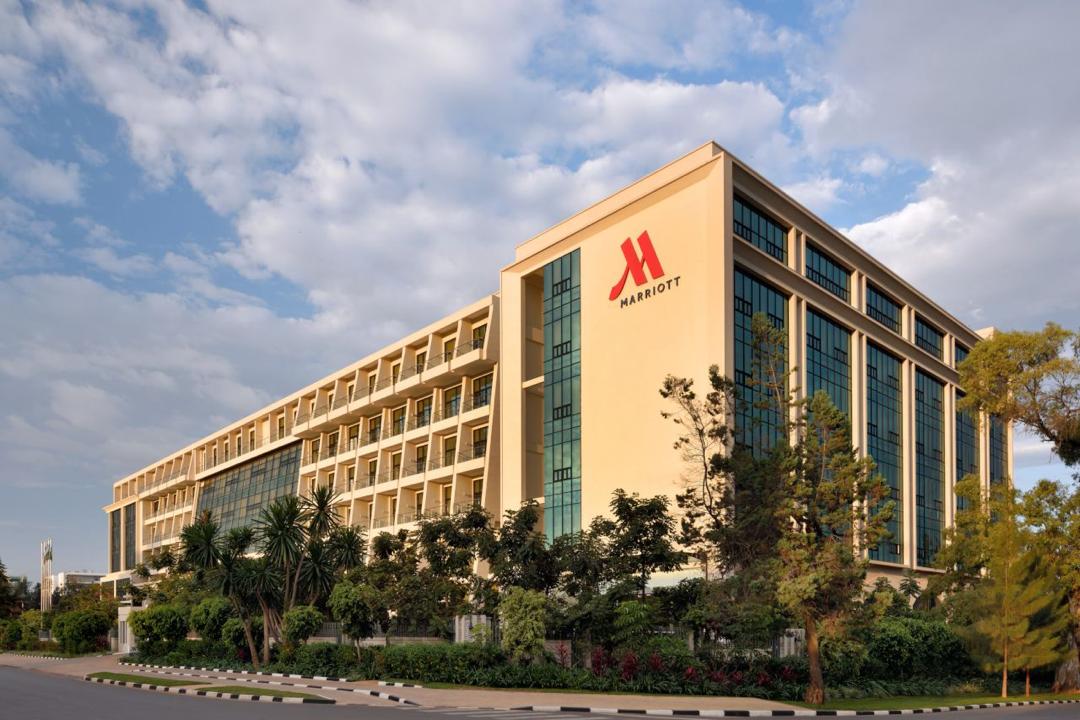The moment visitors step onto the meticulously clean streets of Kigali, they realize this is not the Africa of old narratives. Kigali is polished, dynamic, and safe, setting a standard for urban development and governance across the continent. This unique blend of stability and ambition has cemented its status, not just as a capital city, but as a central pillar of Rwanda’s high-value tourism and hospitality strategy.
The city has seamlessly transformed into a magnet for two distinct, yet complementary, visitor profiles: the high-end eco-tourist and the global business delegate.
The MICE Engine: Business as the Backbone
The cornerstone of Kigali’s modern hospitality sector is its robust MICE (Meetings, Incentives, Conferences, and Exhibitions) infrastructure. Anchored by the striking dome of the Kigali Convention Centre (KCC), the city regularly hosts major global and continental gatherings, from the Commonwealth Heads of Government Meeting (CHOGM) to the World Economic Forum on Africa.

This influx of high-spending business tourists drives demand for premium services. In response, Kigali’s skyline is now dotted with international luxury brands such as the Radisson Blu, Marriott, and Serena hotels. These properties don’t just offer rooms; they deliver world-class service, advanced security, and high-speed connectivity, ensuring delegates can transition smoothly from the rainforests of the north to the boardroom in the city center.
“Kigali has created a seamless environment where infrastructure and service quality meet international standards,” says Dr. Uwimana Kayihura, a regional development consultant. “It’s not just the buildings; it’s the operational efficiency, the ease of obtaining visas, the cleanliness, and the safety that make it the default choice for major events in Africa.”

The Gateway to Green Tourism
While Kigali itself is a vibrant destination, its true value in the tourism ecosystem is its role as the elegant gateway to Rwanda’s celebrated eco-tourism attractions. The city provides the perfect acclimatization point before visitors embark on the journey to see the mountain gorillas in Volcanoes National Park, or explore the canopy walks of Nyungwe Forest National Park.
The hospitality sector in Kigali capitalizes on this ‘arrival and departure’ dynamic by offering:
• Bespoke Experiences: Personalized tours of the city’s burgeoning art scene (like the Inema Arts Center) and its history (the Genocide Memorial), providing cultural context before the wildlife excursions.
• Farm-to-Table Dining: A growing trend in luxury hospitality is focusing on locally sourced ingredients, showcasing Rwanda’s acclaimed coffee and fresh agricultural produce.
This integration ensures that tourists spend time and money in the capital, enriching the local economy before they head out to the parks.
The Heart of Hospitality: Service and Training
Perhaps the most critical, yet least visible, asset of Kigali’s tourism boom is the focus on human capital. Recognizing that excellent service is key to retaining high-end clientele, there has been significant investment in hospitality training and professionalism.
Local universities and training institutions are actively feeding a pipeline of skilled chefs, front-office managers, and service professionals who are equipped not just with technical skills, but with a deep understanding of the famed Rwandan spirit of warmth and welcoming. This focus on local talent ensures that the hospitality sector is built on sustainable, homegrown expertise.
The future of Kigali’s hospitality sector is focused on two areas: sustainability and digital excellence. New developments are increasingly prioritizing green building standards and renewable energy. Simultaneously, the city continues to leverage its high-speed fiber-optic network to attract tech-focused events and ensure seamless digital connectivity for all guests.
Kigali is more than just a beautiful, clean city; it is a meticulously managed brand built on stability, ambition, and world-class service, guaranteeing its continued rise as a preferred global destination.
